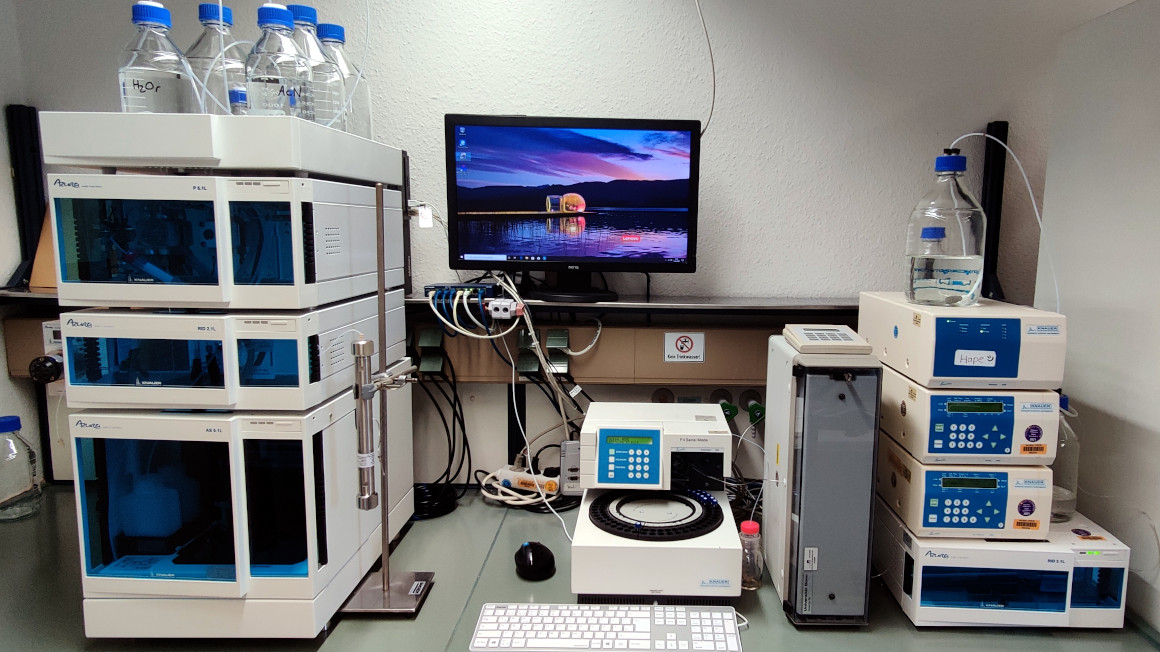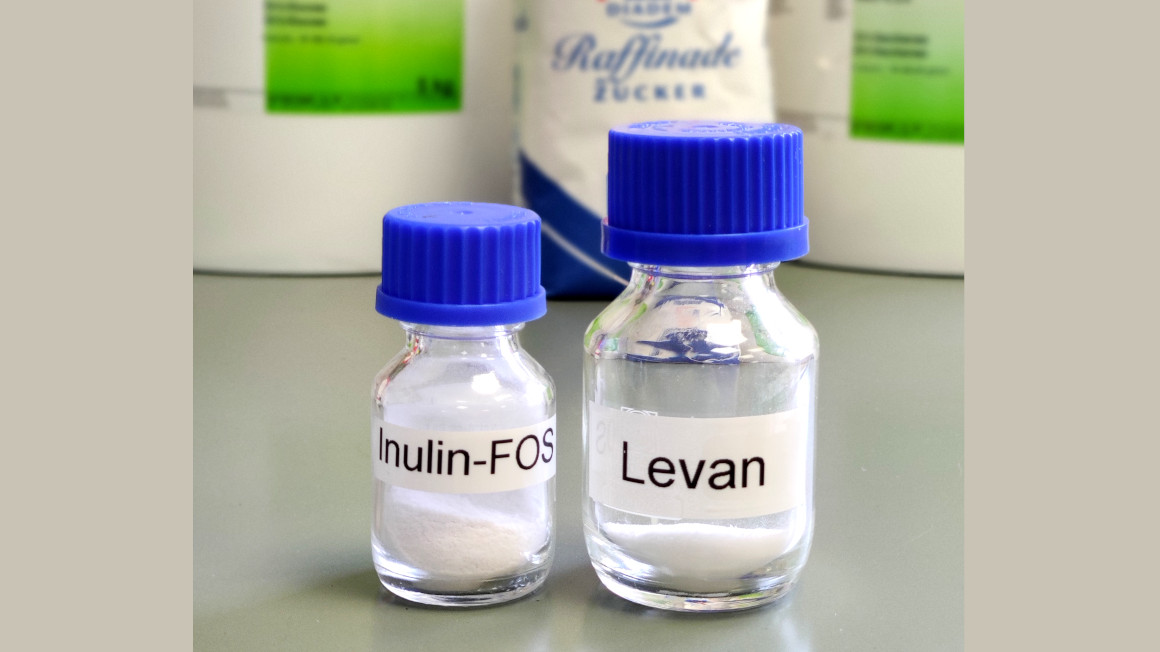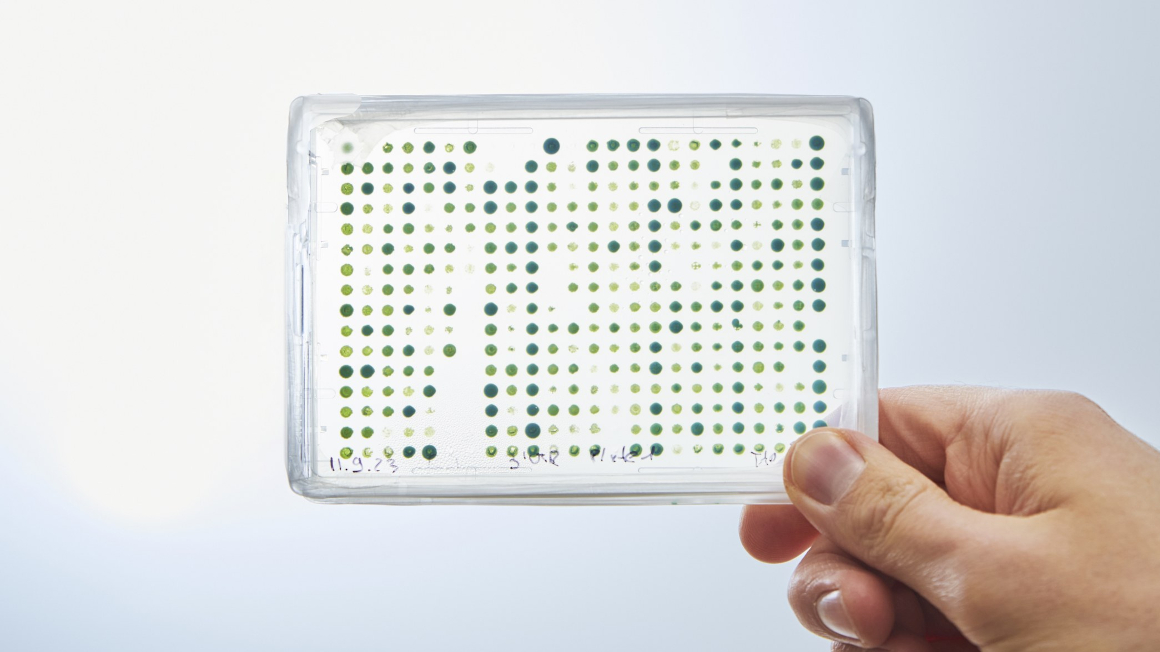
Countless microorganisms live in the human intestine and have a lasting influence on our well-being: Intestinal bacteria. They help to utilize important nutrients in our food, suppress pathogens and ensure an intact immune system. A balanced intestinal flora is therefore extremely important for health - and the right diet can help to maintain this balance. Among the best-known health aids are lactic acid bacteria, which are contained in probiotic foods such as yogurt. But lesser-known prebiotic foods have also been shown to have a positive impact on human health. These include cereals, legumes and root vegetables.
Sugar from renewable resources
As part of the IMPRES joint project, the researchers wanted to develop microbiological processes to produce prebiotics and low-calorie sweeteners sustainably and efficiently. The project was funded by the German Federal Ministry of Education and Research with around one million euros from 2017 to 2021. Researchers from the University of Bonn were responsible for adapting and optimizing the bacterial production platforms. Collaborators from the Rheinisch-Westfälische Technische Hochschule Aachen (RWTH) and the Cologne-based sugar manufacturer Pfeifer & Langen focused on optimizing and upscaling the bacterial cultivation conditions. Forschungszentrum Jülich focused on the development of low-calorie sugars - because synthetic sweeteners in particular are still produced on a petroleum basis. "Our approach was to produce promising sugars from renewable and available raw materials wherever possible. That's why we focused on sucrose and starch," explains research associate Marcel Hövels from the working group of project coordinator Uwe Deppenmeier at the University of Bonn.
Molecules in household sugar newly linked
Unlike probiotics, prebiotics contain indigestible carbohydrates that first have to be broken down by the bacteria in the intestine in order to specifically support the growth of health-promoting bacteria there. The researchers in Bonn used pure crystalline sucrose - i.e., ordinary household sugar - for the microbial production of special prebiotics known as fructooligosaccharides. Household sugar consists of one part glucose and one part fructose. With the help of special biocatalysts, the Bonn team succeeded in splitting the crystalline sugar into these two subunits and linking the sugar molecules in a new way. "Our biocatalysts play Lego with household sugar," Hövels describes. "In this way, sugar chains were created that, because of their unique linkages, are preferentially degraded by health-promoting bacteria in the human gut."

Establish Levan-based prebiotics
The biocatalysts are levansucrases and inulosucrases. Both enzymes were investigated in the project to determine how efficiently they produce the prebiotics levan and inulin. Both are so-called fructans - long sugar chains consisting of fructose units - whose sugar molecules are linked differently depending on the respective enzyme. In the project, Hövels' team focused more on levan-based prebiotics. The reason: unlike inulin, which is already processed as a prebiotic in numerous foods, Levan-based prebiotics are not yet available on the market due to a lack of appropriate production processes. "Our goal was to identify and characterize biocatalysts to produce larger quantities of these Levan-based prebiotics. By doing so, we wanted to develop industrial processes that would enable the most efficient and cost-effective production of these promising sugars," explains Hövels.
After initial trials with the well-known production strain Escherichia coli, the team eventually switched to the marine bacterium Vibrio natriegens to produce the biocatalysts described. "The organism grows incredibly fast and was able to generate a lot of biomass and thus biocatalyst in a very short time," Hövels explains. Especially with a view to the industrial production of Levan-based prebiotics, this would be advantageous because the time in the bioreactor could be shortened and costs saved.
Positive effect on gut flora shown
The researchers also investigated how well the modified sugars are metabolized by human intestinal bacteria and their effect on the intestinal flora. This was investigated in so-called growth experiments using bacteria localized in the intestine. "We were able to see that certain benign bacteria metabolize the Levan-based fructans very well and so it can be assumed that the substances have a good effect on the human intestinal flora," Hövels sums up.
The microbial process for the production of Levan-based prebiotics was developed for industrial use. A patent for the production process has been filed with the European Patent Office and is awaiting approval. The researchers are currently working with the project partner Pfeifer & Langen on upscaling the processes in order to produce larger quantities of the biocatalysts and thus also of the novel prebiotics. These could then be used in the food industry, but also in the production of animal feed, where they could demonstrably reduce the use of antibiotics in animal husbandry.
Microbial production of low calorie sugars
For the microbial production of low-calorie sugars based on sucrose, the scientists investigated a modified form of lactose - lactosaccharose. "The Lego principle of our biocatalysts can also be used for the production of other sweet-tasting sugar derivatives," Hövels sums up. For example, the fructose contained in household sugar can be processed into lactose with the help of the biocatalysts. The resulting lactosaccharose is technically no longer a sugar, but a dietary fiber. This is also evident in how the compound is metabolized in the body, because lactosaccharose, like other dietary fibers, has prebiotic properties. "I'm pretty sure there are other exciting products here that we can make with our biocatalysts," Hövels said. In the meantime, the IMPRES joint project has entered its second phase with the support of the Federal Ministry of Education and Research.
Author: Beatrix Boldt


